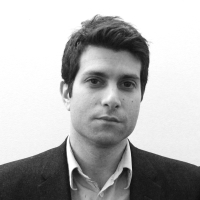Three years of civil war has created a catastrophe in Syria with few parallels in the 21st century. A tragedy for average Syrians, for others the carnage has been an opportunity. Amid the wreckage, jihadist groups fighting the regime and each other have planted their flags in the rubble and tested the limits of their power.

None have claimed more ground or been more brutal in the areas under their control than ISIS, the Islamic State of Iraq and ash-Sham. While al Qaeda aims to resurrect the Caliphate, ISIS claims it has already done so and declared itself ruler of the world’s only true Islamic state.
In Raqqa, the northern Syrian city where ISIS is strongest, there’s a grim view of what a future under the group’s control would look like. The city is governed by brutal, primitive codes of justice where death is meted out for minor infractions and the bloody corpses are tweeted out to ISIS followers and admirers across the world.
Last week, ISIS showed off its approach to administering God’s kingdom on earth, executing and publicly crucifying two men in the center of Raqqa.
The killing hasn’t been limited to Assad forces and locals living under ISIS rule. The group has branded rival anti-regime Islamist factions as infidels, publicly slaughtered their members, and bragged about killing their leaders.
It’s this approach that has made ISIS too extreme even for al Qaeda, which publicly disavowed the group earlier this year.
Wanton violence has led to some bad PR and threatened popular support for jihadist groups in Syria, but that wasn’t the only ISIS offense that led to its censure by al Qaeda. There’s also a theological and political schism between the two.
ISIS “considers themselves the embodiment of the Islamic state already,” said Aymenn Jawad Al-Tamimi, a scholar studying Syria’s jihadist groups and a Shillman-Ginsburg Fellow at the Middle East Forum. Accordingly, ISIS acts with a sense that divine authority makes it infallible, while al Qaeda favors a more incremental approach, building popular support before declaring the establishment of the Caliphate.
In a perverse turn, as violence in Syria has given even more radical groups the chance to seize power, al Qaeda has become the moderate voice among jihadists. But for ISIS, there have been benefits to fanaticism.
“The fact that ISIS openly declares the project of the Caliphate and the global nature of the struggle makes them more appealing to foreign fighters,” said Al-Tamimi. The group, he added, attracts “jihadist fanboys” who eagerly tweet the latest ISIS images of beheadings and pronouncements of Sharia law.
“The call of the Islamic state is a powerful one for jihadists and recruits, and it’s become a real problem for al Qaeda,” said Thomas Joscelyn, a senior fellow at the Foundation for Defense of Democracies and senior editor of The Long War Journal who has written extensively about ISIS.
One sign that al Qaeda fears losing ground to the upstarts are the gestures of reconciliation it has made toward ISIS.
The leader of al Qaeda, Ayman al Zawahiri, released a new message recently addressing the fighting between ISIS and other jihadist groups, including Al Nusrah Front, al Qaeda’s official representative in Syria. Zawahiri was conciliatory but stern, commanding ISIS to leave Syria and go back to Iraq, where the group was founded.
Addressing ISIS leader Abu Bakr al Baghdadi directly, Zawahiri says: “Listen to and obey your emir once again…Come back to what your sheikhs, emirs, and those who preceded you on the path and immigration of jihad have worked hard for.”
Joscelyn described Zawahiri’s message as an appeal to ISIS to “give up your claim of the Caliphate for the greater good of the Ummah [Muslim community].”
Zawahiri’s plea is unlikely to have much impact, said Al-Tamimi. “It’s not going to make a difference because ISIS don’t believe they answer to Zawahiri, to al Qaeda central, or to anyone,” he said.
“If you say they’re an organization or a group, they take offense to that. They already see themselves as a state,” Al-Tamimi said. “If you wage war on the Islamic state, then in their view you’re considered to be waging war on god and his messenger, and one of the punishments prescribed for that in Chapter 5, Verse 33 [of the Quran] is crucifixion.”
Billboards in ISIS-controlled areas of Syria read: “We are cultivating the tree of the caliphate” and “A Caliphate pleases the Lord more than ‘freedom’ pleases the West.”
In Raqqa, ISIS enforces its version of the Caliphate by proscribing a set of draconian rules and exacting brutal, public punishments on those it deems to have broken them. As Al-Tamimi describes it, “Shops have to close during prayer time, shops have to pay for cleaning services”—a practice he describes as an extortion racket—“ISIS enforces the wearing of the niqab, a ban on smoking, a ban on CDs.”
While ISIS orders that “at 11 or older girls must wear at least a hijab,” the group has taken time off from enforcing its prohibitions to promote Raqqa’s quality of life on Twitter. In one Twitter image that Al-Tamimi captured, an ISIS member in a paramilitary uniform with a black mask covering his face poses in a playground pushing a child on a swing. That image of the gentle jihadist playing with children came a day before ISIS tweeted photos of the men it had executed and crucified.
This is ISIS’s vision for ruling Syria, and if the group expands its control, more of the country will fall under its fanatical version of justice and virtue. “Raqqa is the model of governance they want to promote, ” Al-Tamimi says.
The city has become a hellish sector of repression, even within a country destroyed by war, but according to Al-Tamimi it wasn’t always this way. Before ISIS took over, he said, there was some support for a relatively liberal rebel movement that featured an anti-sectarian rapper. Now his rhymes could get him killed.






